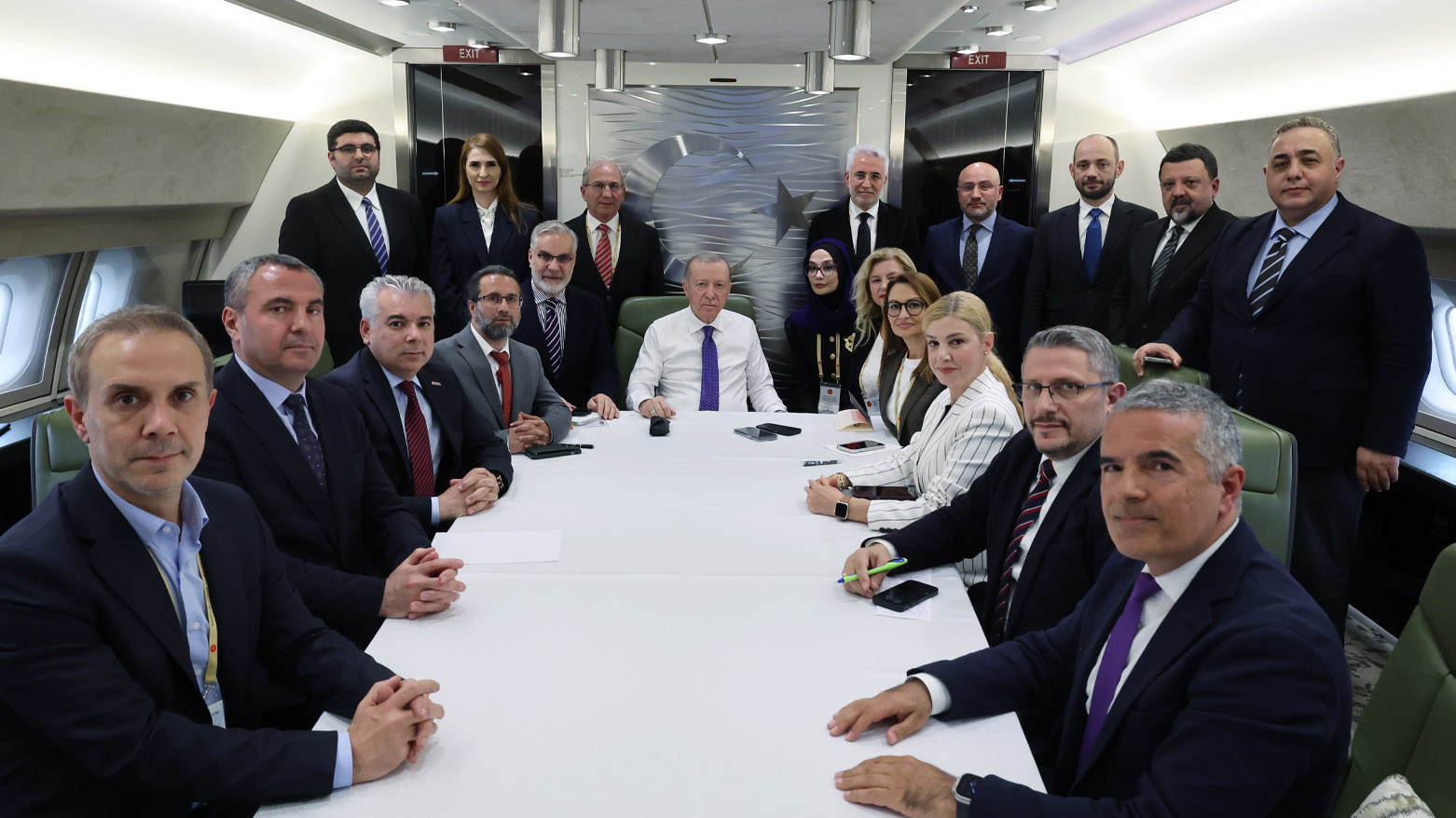'Weapons Must Be Buried,' Erdoğan Demands Full PKK Dissolution
Erdoğan said Turkish security agencies are coordinating with Baghdad, Erbil, and neighboring states to manage PKK's disarmament, including those outside Türkiye.

By Kamaran Aziz
ERBIL (Kurdistan24) – Turkish President Recep Tayyip Erdoğan has declared that the complete disarmament of the Kurdistan Workers’ Party (PKK), the full implementation of its dissolution decision, and an unequivocal end to all illegal activities are essential for ushering in what he called a “Terror-Free Türkiye.” His remarks were made aboard his return flight from the European Political Community Summit in Tirana, Albania, and follow a series of recent statements that reinforce Ankara’s commitment to a verifiable and sustained transition away from militancy.
According to a report by Anadolu Agency, Erdoğan described the recent announcement of the PKK’s self-dissolution—made in conjunction with Nationalist Movement Party (MHP) leader Devlet Bahçeli—as a major step forward but stressed that declarations alone are not sufficient.
“Weapons must be buried, the decision for dissolution must be fully enforced, and illegality must be renounced,” he asserted.
His statements echoed similar comments made earlier at the Justice and Development Party (AKP) Congress, where Erdoğan called the PKK’s announcement a “pivotal step” toward ending decades of armed conflict and opening a new chapter in Turkish political life based on peace, law, and diplomacy. “The PKK’s decision to disarm and dissolve its structure brings Türkiye into a post-terror era. The age of violence, illegality, and armed insurgency is drawing to a close,” he told party delegates.
Erdoğan emphasized that Türkiye’s National Intelligence Organization (MIT) will closely monitor the implementation of the disarmament process. He also called on all PKK-linked groups operating in northeast Syria, in Europe, and beyond to adhere strictly to the central leadership's directive.
The PKK - a designated terrorist group by the U.S., European Union, and Türkiye - had announced the conclusion of its 12th Congress on May 7, during which it formally declared the end of its armed campaign and the dissolution of its organizational structure. The statement, issued under the direction of jailed leader Abdullah Ocalan, declared that the PKK had fulfilled its “historical responsibility” and committed to resolving the Kurdish issue through political means.
Murad Karayilan, a senior PKK executive, addressed the same congress, urging the Turkish state to accompany the disarmament with legislative reforms and legal guarantees to protect former militants. “If the state truly speaks of peace, it must put an end to enmity,” Karayilan said.
Erdoğan’s comments also reflected optimism about peace and transformation in southeastern Türkiye, where traditional celebrations and communal gatherings have reemerged. “Peace is not for political gain; it is for the people,” he noted, adding that restored security will foster economic revival, especially in commerce, tourism, and local development.
Addressing the practical aspects of the disarmament process, Erdoğan revealed that Turkish security agencies are coordinating with authorities in Baghdad and Erbil, while discussions with neighboring countries are focused on managing the surrender of militants stationed outside Türkiye. “Once the process is complete, violence will give way to civil politics and regional stability,” he said.
In a notable diplomatic development, Erdoğan confirmed that Syrian President Ahmad Sharaa has made two visits to Türkiye for direct talks. He added that Turkish Foreign Minister Hakan Fidan, Intelligence Chief İbrahim Kalın, and Defense Minister Yaşar Güler are maintaining regular coordination with Damascus to ensure the disarmament roadmap is carried out effectively.
The president also praised U.S. President Donald Trump’s recent decision to lift sanctions on Syria, describing it as “important and meaningful.” Erdoğan expressed hope that the move would set a precedent for broader international engagement, especially from the European Union, in the reconstruction of Syria. He noted that the decision was also welcomed during a three-way conference call on May 7 with President Trump and Syrian President Sharaa.
Beyond counterterrorism, Erdoğan reiterated Türkiye’s commitment to humanitarian aid in Gaza, ongoing diplomatic mediation between Russia and Ukraine, and readiness to support peace efforts in Kashmir. “We are doing everything we can. Peace cannot come through weapons; diplomacy must prevail,” he said regarding the Ukraine conflict.
On U.S.-Türkiye relations, Erdoğan welcomed Washington’s recent $300 million air-to-air missile sale to Ankara, interpreting it as a positive sign of easing tensions under CAATSA sanctions. “With President Trump, our dialogue has become more constructive and transparent,” he noted. “A strong U.S.–Türkiye partnership is vital for regional and global stability.”
Erdoğan concluded by emphasizing national unity and public support as essential elements behind the country’s progress. “A victory without the nation’s will is unimaginable,” he said, attributing the momentum of the current peace process to the collective resolve of the Turkish people.
As Türkiye embarks on what could be a historic transformation, Erdoğan’s message was unequivocal: without complete disarmament and accountability, there can be no lasting peace. But if the process succeeds, it could reshape not only the Turkish state but the broader region as well.
